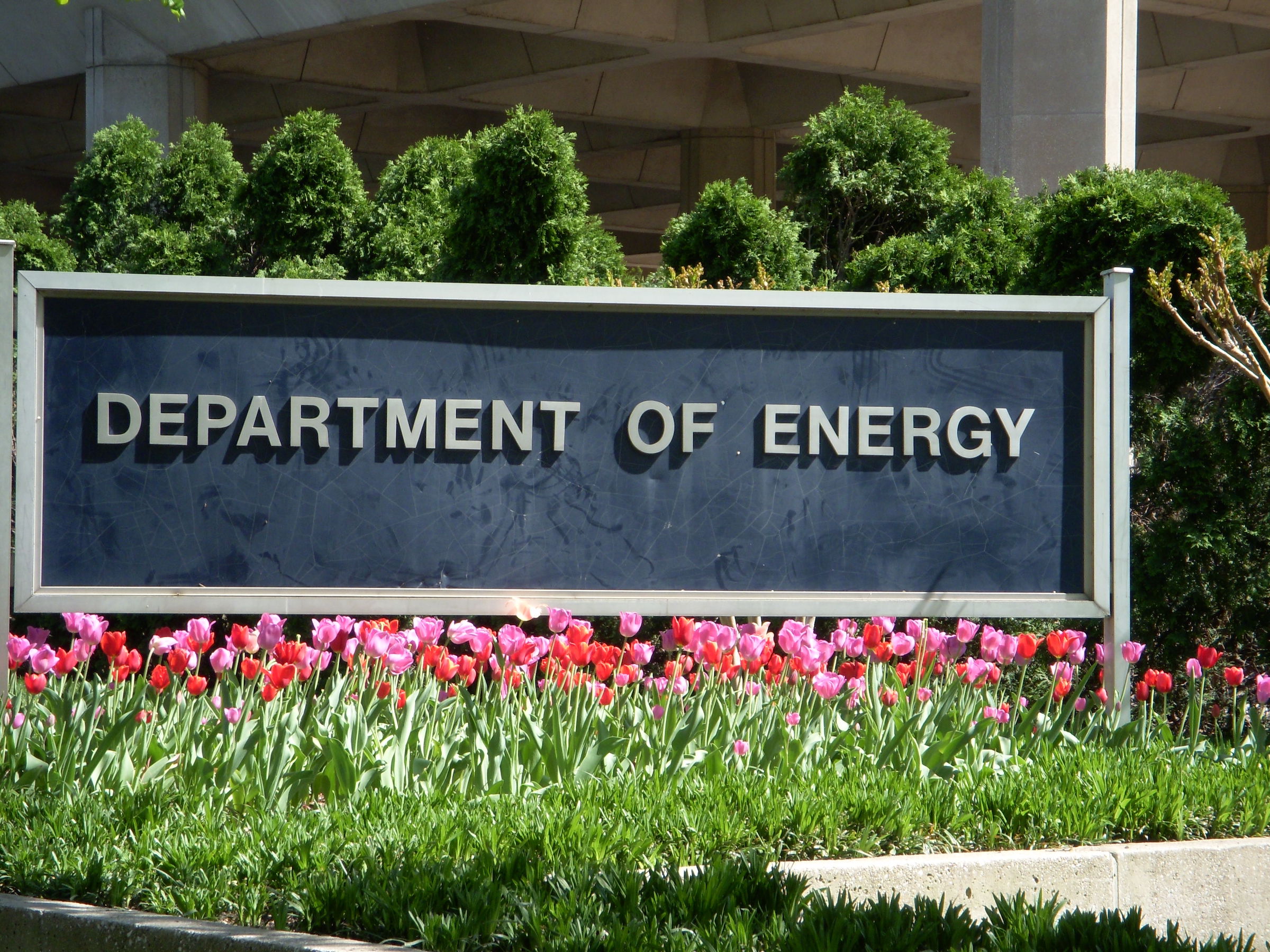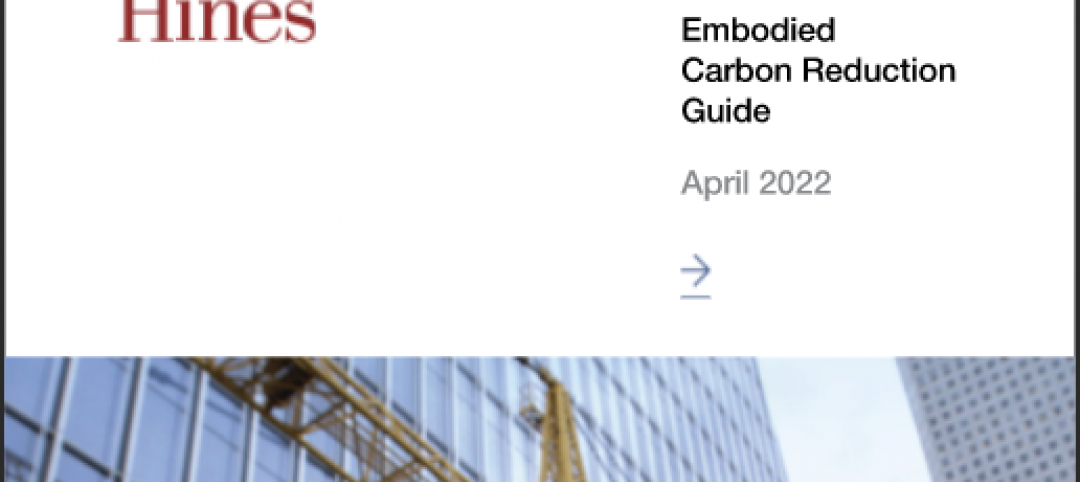The Buildings Upgrade Prize (Buildings UP) sponsored by the U.S. Department of Energy is offering more than $22 million in cash prizes and technical assistance to teams across America. Prize recipients will be selected based on their ideas to accelerate widespread, equitable energy efficiency and building electrification upgrades.
In Phase 1 of Buildings UP, teams will submit innovative concepts to increase building energy upgrades within one of two pathways: “Equity-Centered Innovation” or “Open Innovation.” Winning “Equity-Centered Innovation” teams, focused on delivering upgrades to low- and moderate-income homes; small, disadvantaged businesses; and other equity-eligible buildings, will receive $400,000 in cash.
Winning “Open Innovation” teams will receive $200,000 in cash. Winners from both pathways will also receive expert technical assistance and coaching to help bring their ideas to life. Community-based organizations, state and local governments, Indian tribes, building owners, utilities, nonprofit organizations, energy efficiency program implementers, and other organizations are encouraged to team up and apply.
“We have a once-in-a-generation opportunity to leverage billions of dollars in funding available through the Bipartisan Infrastructure Law, the Inflation Reduction Act, utility rebate programs, and many other sources to upgrade our existing buildings and help address climate change,” said Alejandro Moreno, Acting Assistant Secretary for Energy Efficiency and Renewable Energy. “Transforming existing buildings is a complex task. Each building has its own set of needs related to size, use, age, location, and more—there is no one-size-fits-all solution. Buildings UP is designed to build capacity within multi-stakeholder teams to develop a variety of solutions and drive the implementation of effective building upgrade initiatives across the country.”
Here is the full release form the U.S. Department of Energy:
The Buildings Upgrade Prize (Buildings UP) is offering more than $22 million in cash prizes and technical assistance to teams across America with winning ideas to accelerate widespread, equitable energy efficiency and building electrification upgrades.
“We have a once-in-a-generation opportunity to leverage billions of dollars in funding available through the Bipartisan Infrastructure Law, the Inflation Reduction Act, utility rebate programs, and many other sources to upgrade our existing buildings and help address climate change,” said Alejandro Moreno, Acting Assistant Secretary for Energy Efficiency and Renewable Energy. “Transforming existing buildings is a complex task. Each building has its own set of needs related to size, use, age, location, and more—there is no one-size-fits-all solution. Buildings UP is designed to build capacity within multi-stakeholder teams to develop a variety of solutions and drive the implementation of effective building upgrade initiatives across the country.”
Upgrading existing buildings to efficiently run on clean energy will help address climate change. Solutions can be varied and may include adoption of efficient electric equipment and appliances, including heat pumps and heat pump water heaters, as well as enhanced building efficiency through measures such as insulation and air sealing. Together, these efforts will help reduce carbon emissions and energy costs while improving indoor air quality and occupant comfort.
In Phase 1 of Buildings UP, teams will submit innovative concepts to increase building energy upgrades, choosing to enter one of two pathways: “Equity-Centered Innovation” or “Open Innovation.” Winning “Equity-Centered Innovation” teams, focused on delivering upgrades to low- and moderate-income homes; small, disadvantaged businesses; and other equity-eligible buildings, will receive $400,000 in cash. Winning “Open Innovation” teams will receive $200,000 in cash. Winners from both pathways will also receive expert technical assistance and coaching to help bring their ideas to life.
Community-based organizations, state and local governments, Indian tribes, building owners, utilities, nonprofit organizations, energy efficiency program implementers, and other organizations are encouraged to team up and apply. Phase 1 opens for submissions on February 18, 2023.
Up to 50 Application Support Prizes of $5,000 and 10 hours of technical assistance are available to help new and under-resourced teams complete Phase 1 applications. The Application Support Prize opens for submissions on Jan. 18, 2023, and will be awarded on a rolling basis until funds are expended.
Buildings UP is administered by the National Renewable Energy Laboratory and is part of the American-Made program, which fast-tracks innovation through prizes, training, teaming, and mentoring. Teams competing in Buildings UP will have access to the American-Made Network, connecting the nation’s entrepreneurs and innovators to America’s national labs and the private sector. Mentoring, tools, resources, and support through the American-Made Network help accelerate the transition of ideas into real-world solutions to achieve clean energy goals.
Buildings UP was developed and funded by the U.S. Department of Energy Building Technologies Office as part of its overall mission to reduce the carbon footprint of the U.S. building stock while maintaining or improving affordability, comfort, and performance.
Follow Buildings UP on HeroX.com for all prize-related updates. Phase 1 submissions are due by July 18, 2023.
Related Stories
Geothermal Technology | Dec 6, 2022
Google spinoff uses pay-as-you-go business model to spur growth in geothermal systems
Dandelion Energy is turning to a pay-as-you-go plan similar to rooftop solar panel leasing to help property owners afford geothermal heat pump systems.
K-12 Schools | Nov 30, 2022
School districts are prioritizing federal funds for air filtration, HVAC upgrades
U.S. school districts are widely planning to use funds from last year’s American Rescue Plan (ARP) to upgrade or improve air filtration and heating/cooling systems, according to a report from the Center for Green Schools at the U.S. Green Building Council. The report, “School Facilities Funding in the Pandemic,” says air filtration and HVAC upgrades are the top facility improvement choice for the 5,004 school districts included in the analysis.
Legislation | Nov 23, 2022
7 ways the Inflation Reduction Act will impact the building sector
HOK’s Anica Landreneau and Stephanie Miller and Smart Surfaces Coalition’s Greg Kats reveal multiple ways the IRA will benefit the built environment.
Industry Research | Nov 8, 2022
U.S. metros take the lead in decarbonizing their built environments
A new JLL report evaluates the goals and actions of 18 cities.
Green | Nov 8, 2022
USGBC and IWBI will develop dual certification pathways for LEED and WELL
The U.S. Green Building Council (USGBC) and the International WELL Building Institute (IWBI) will expand their strategic partnership to develop dual certification pathways for LEED and WELL.
Green | Jul 26, 2022
Climate tech startup BlocPower looks to electrify, decarbonize the nation's buildings
The New York-based climate technology company electrifies and decarbonizes buildings—more than 1,200 of them so far.
Green | Jun 22, 2022
The business case for passive house multifamily
A trio of Passive House experts talk about the true costs and benefits of passive house design and construction for multifamily projects.
Green Specifications | May 12, 2022
MG2’s Sustainable Materials Evaluation System
Learn how MG2’s Sustainable Materials Evaluation System helps clients, prospects, and staff choose the most environmentally feasible materials for their building projects. Candon Murphy, LEED GA, Assoc. IIDA, Design Lab Manager and Materials & Sustainability Specialist with MG2, speaks with BD+C Executive Editor Rob Cassidy.
Codes and Standards | May 2, 2022
Developer Hines, engineer MKA develop free embodied carbon reduction guide
Real estate management and investment firm Hines has released the Hines Embodied Carbon Reduction Guide. The free guide, produced with Magnusson Klemencic Associates (MKA), is the result of a two-year effort, relying on MKA’s industry-leading knowledge of carbon accounting and involvement in programs such as the Embodied Carbon in Construction Calculator (EC3) Tool.
Legislation | Mar 28, 2022
LEED Platinum office tower faces millions in fines due to New York’s Local Law 97
One Bryant Park, also known as the Bank of America Tower, in Manhattan faces an estimated $2.4 million in annual fines when New York City’s York’s Local Law 97 goes into effect.

















